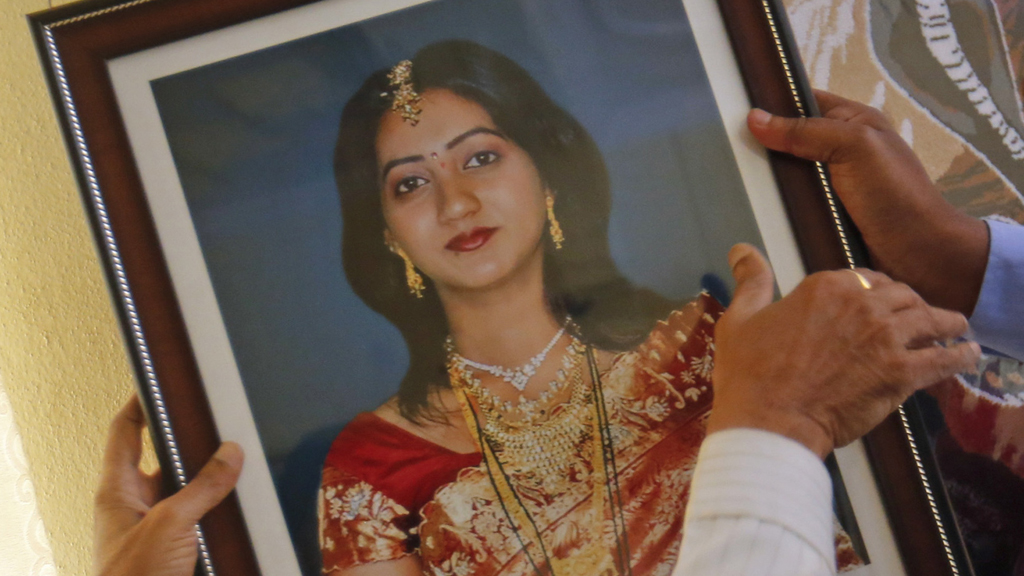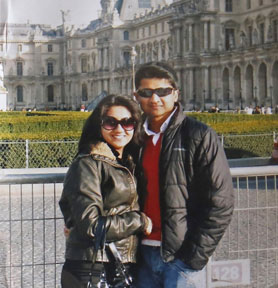Savita Halappanavar: ‘We just want to know why she died’
The husband of a pregnant Indian dentist who died in an Irish hospital, where allegedly she was refused an abortion, say he has faith the inquest will uncover the truth around her death.

Savita Halappanavar was 17 weeks pregnant when she was admitted to University Hospital Galway in October last year. She died on 28 October after suffering a miscarriage and suspected septicaemia.
Praveen Halappanavar insists the couple repeatedly asked for an abortion but were refused because the foetal heartbeat was present. He said that at one point the couple were told termination was not possible because Ireland “is a Catholic country”.
We just want to know why she died – Praveen Halappanavar, husband
Speaking on the first day of evidence, Mr Halappanavar said the days before the inquest had been difficult as they coincided with the due date of the baby on the 30 March this year.
Mr Halappanavar said his family had faith that the inquest would find the “answers” behind her death.
He said:
“The big question is why was Savita treated the way she was not supposed to be? We just want to know why she died.”

Opening the inquiry, the coroner, Dr Ciaran MacLoughlin, extended his sympathies and condolences to Mr Halappanavar and his family.
He also told the jury that the inquiry would not find any party innocent or guilty, and that it was a fact-finding exercise.
“Savita died in tragic circumstances,” Dr MacLoughlin said.
“The family of Savita, in the presence of her husband, have suffered a very traumatic experience.”
The Health Service Executive has apologised over the treatment given to Mrs Halappanavar.
The Irish government has promised the abortion law would be clarified following Savita’s death.
The law in Ireland does not specify under what circumstances the threat to the life or health of the mother is high enough to justify a termination, leaving doctors to decide on a case-by-case basis.
Ireland’s Deputy Prime Minister Eamon Gilmore said last year: “I was deeply disturbed yesterday by what Savita’s husband said. I don’t think as a country we should allow a situation where women’s rights are put at risk in this way.
“There is no question of equivocation. We need to bring legal clarity to this issue and that is what we are going to do.”